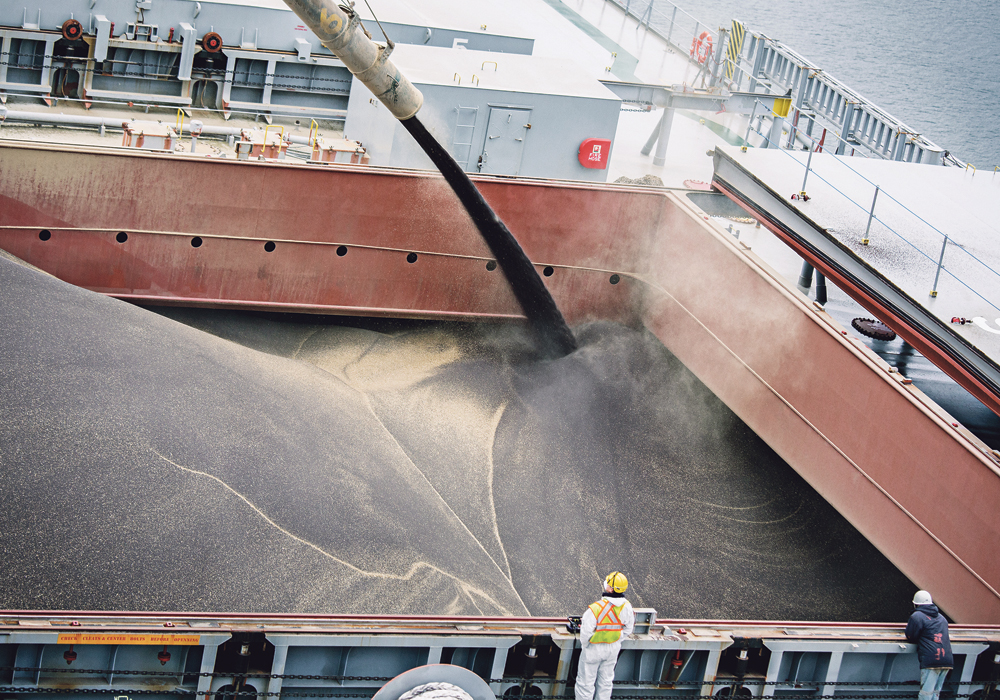The head of Regina-based Viterra says finding new canola buyers to fill the void left by China’s decision to stop buying Canadian canola won’t be easy.
Since China blocked Canadian imports in March citing pest contamination, many people have suggested new markets are the answer. The federal government has been on trade missions to drum up business, but Kyle Jeworski said diversification won’t happen quickly.
He said canola accounted for 40 percent of the company’s exports and few places could take that much product.
Read Also

Volatile temperatures expected for this winter
DTN is forecasting a lot of temperature variability in the Canadian Prairies this winter. Precipitation should be close to average.
“We’ve been doing close to 4.5 million tonnes,” he said after a presentation at the Canada’s Farm Progress Show opening. “We have been able to get other buyers like Pakistan, Bangladesh, Mexico and even the Europeans to buy a little bit more, but even to increase a cargo here and a cargo there to additional markets, it cannot absorb what is lost with the Chinese market, and we are the largest exporter into that market.”
Viterra has the advantage of staff located in 38 different countries, he said.
“We’re in the time zones, we speak the language, so we are actively engaged in trying to expand the markets for Canadian canola,” he said.
Jeworski said market acceptance is the first step but if that acceptance is gained, canola isn’t the same as something like feed barley that can immediately be fed to an animal. Physical crushing capacity and infrastructure take investment and time.
Canadian crushers are running at capacity. Viterra has three crushing plants that are operating at 85 percent capacity, Jeworski said, and a new plant doesn’t appear to be on the books.
“Market fundamentals have been variable the last number of years,” he explained. “We’d like to see some clearer signals.”
He also put Canada’s capacity into international perspective. Glencore, which owns Viterra, owns a soybean crush facility in Argentina. Its annual capacity is equal to Canada’s entire soy and canola crushing capacity, Jeworski said.
Canadian exporters need free, open trade with consistent rules, he said.
“We believe that the quality claims are false,” he said of China.
Pulse Canada chief executive officer Gordon Bacon said during a panel discussion on market access at the show that Canada has faced market access issues for years.
The difference this time is that more than one commodity is affected and the barriers have hit during a down cycle.
“We’ve transitioned into non-tariff trade barriers,” he said. “I don’t know that it’s more (in number). I think it’s more difficult.”
Karen Churchill from Cereals Canada said there is a six-fold increase in the number of non-tariff trade barriers.
Bacon said Canada lacks the strong relationships that are needed to resolve these types of issues. Scientific issues should have scientific solutions, he said.
“You can’t solve a technical problem if the motivation is political.”
He, like Jeworski, said Canada requires international rules, and enforcement of those rules with consequences. Otherwise, as a medium-sized player it’s hard to compete.
But he also said international trade rules are nearing collapse as big players like China and the United States put their own interests first, leaving countries like Canada to pay the price.
Cherilyn Nagel, a director of the Global Farmer Network and farmer at Mossbank, Sask., said China entered the World Trade Organization in 2001 as a developing nation and should be reminded that it is now the second-largest economy.
“I think it’s time we hold them accountable for the WTO they wanted to participate in and hold them accountable to these rules,” she said.
Bacon added that Canada has to begin thinking beyond market diversification in commodities and focus instead on differentiating products based on health, nutrition and sustainability.
















